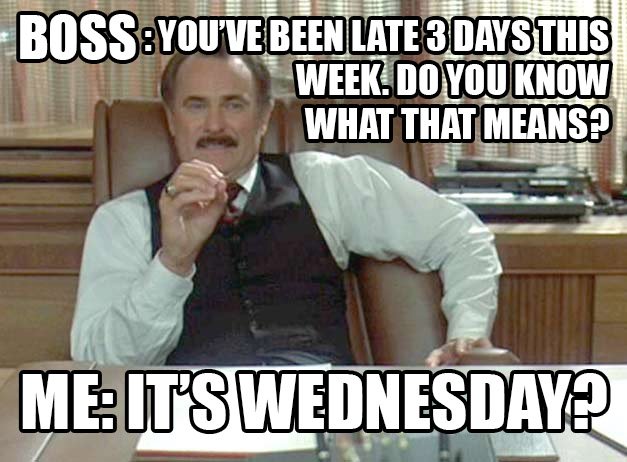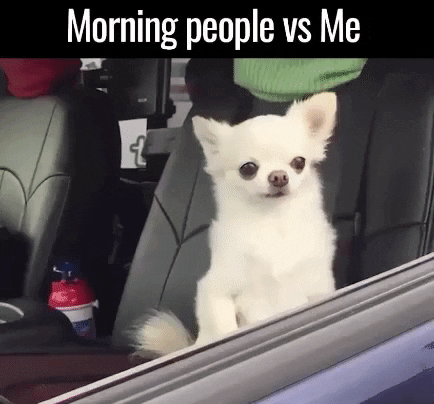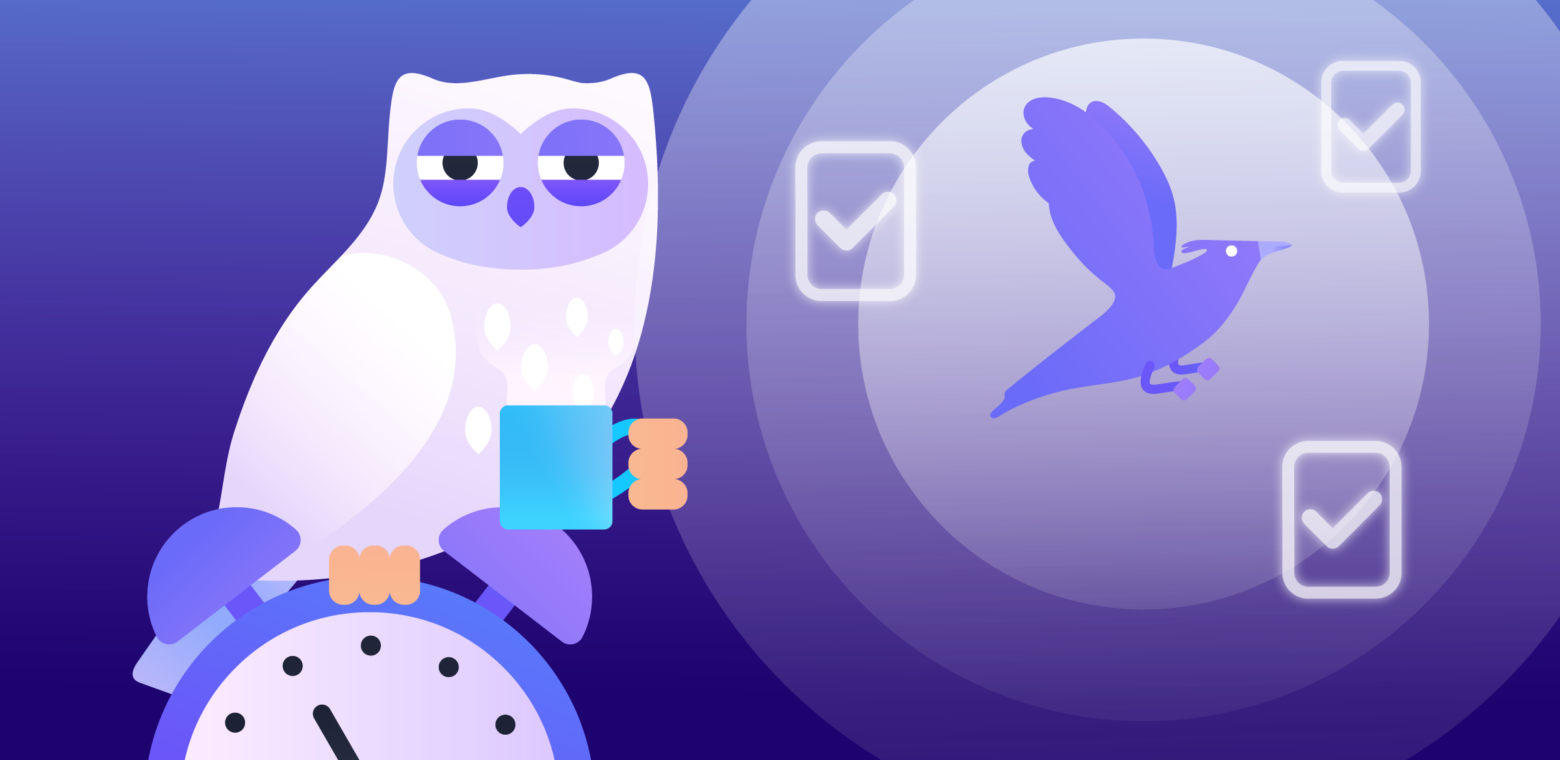Did you know that when you first wake up in the morning, your brain is physically bigger than it will be when you go to sleep? It’s because our brains are the most hydrated after a period of rest.
According to authors Dr. Robert Carter and Dr. Kirti Salwe Carter in their book, The Morning Mind, the best performing brain is a hydrated brain. So here’s the conundrum: If humans already have an inherent biological advantage to being morning people, why is it so (so, so, so) hard for so many of us to be chipper and productive at the crack of dawn?
One way to channel your inner early riser is to mimic the habits of successful morning people: have a routine, meditate, exercise before work. But how do those habits get formed in the first place?
They originate in that happy, hydrated, “morning” brain. Let’s take a look at how these early risers think and process their world—with enough science (and coffee), we might just unlock the mysteries of their productivity.
Good Morning, What’s Your Chronotype?
Personality psychologists have dubbed the difference between our early-to-rise or late-to-bed tendencies as “morningness” and “eveningness.” These two poles point to a person’s circadian preferences, or chronotype.
Our chronotype is, in essence, how we prefer to organize our day for peak performance and rest periods based on underlying rhythms in our bodies built by biology (nature) and life circumstances (nurture). We might be a morning lark, a night owl, or a bird somewhere in between.
As it turns out, our tendency for morningness or eveningness can affect our personality and behavior. A 2017 study published by CUNY psychologist Anastasiya Lipnevich et al. in the Journal of Personality and Social Psychology combined the findings of samples totalling over 16,000 individuals to look at these two concepts in comparison with the Big Five model of personality traits:
- Conscientiousness; or, sense of duty
- Extraversion; or, receptiveness to social experiences
- Neuroticism; or, sensitivity to problems and threats
- Agreeableness; or, the desire to be friendly towards others
- Openness; or, enjoyment of new experiences
Rather than being a part of these core five personality traits, morningness and eveningness are distinct concepts that affect how our personalities exhibit themselves.
For example, the study found that conscientiousness is most strongly linked to morningness tendencies, while extraversion and openness are more strongly connected to eveningness.

Want to know where you fall on the spectrum? Take a quiz!
The Morningness-Eveningness Questionnaire (MEQ), developed by researchers James A. Horne and Olov Ostberg in 1976, gives you insight into your “circadian rhythm type.” The questions determine a score ranging from 16-86, placing you on a spectrum from full-on night owl to extreme early bird.
If you’d rather know your type, try this Chronotype Quiz from Atlassian that will help you optimize your chronotype for your workday.
But only rarely do people fall squarely into either camp. Lipnevich told The Cut that as many as 80% of people fall somewhere in between.
Scores between 42-58 indicate “intermediate” types of tendencies, which means you can lean towards either time of day, depending on motivation, required tasks, and energy levels. You’ll also waffle between the two poles as you age, being geared more towards eveningness in your twenties, and morningness in your fifties.
Cracking The Morning Chronotype Code
The role of chronotype on our behaviors and tendencies has been studied in various forms across the past few decades, and—to no surprise—different studies show different results. What is clear is that there is a significant biological factor that plays into chronotypes.
Roughly explained, from your brain to your gut, you have various internal clocks that send out alarms throughout the day. These alarms don’t go off at the same time for everyone. Your body’s rhythms are personalized to your DNA and may or may not fit within society’s general structure of a 9-5 workday—creating problems for you (and maybe your boss) if you’re not naturally a morning person.

All is not lost for night owls, however.
If your life simply doesn’t permit you to build your own circadian-perfect schedule into the wee hours, there are some behavioral tendencies that morning people emit that you can build into productive habits—no matter your chronotype.
1. Staying consistent with what’s important
Results from a large 2010 study in the European Journal of Personality showed that conscientiousness (remember that sense of duty thing?) is the Big Five personality trait most directly linked to morningness. Conscientious people are responsible, organized, hard-working, reliable, and able to control impulses to stay on track towards their goals. It’s a key factor for success, but often hard to master.
If trying to mimic morning habits themselves feels difficult, maybe unearthing your sense of duty towards your most important goals might help. Waking up at 6 a.m. every day to workout might feel torturous on the surface, but thinking about your dedication to your health so you can feel energized to work on your passion project after you leave the office might give you the motivation to show up day after day.
2. Proactively tackling your tasks
A 2009 study published in the Journal of Applied Social Psychology found that morning people were more proactive than night people. However, the researchers also found that folks with small differences between their workdays and free days were more proactive. So going to bed and getting up at the same time everyday (regardless of when that is) has the potential to help you take on tasks with less procrastination.
You can also try “eating the frog,” another proven proactive technique—by tackling your top task first so that, no matter when you start on your deep work, you’ll be primed to accomplish your most important goal.
3. Aim to feel like you’re working at your best
This is a trickier one because happiness can be a loaded concept, but researchers Biss and Hasher reported in 2012 that, in their studies, morning people reported higher levels of positive feelings and well-being than those who scored lower on morningness. When you feel happier, you perform better.
A Fast Company article makes an excellent point that this finding may have something to do with the fact that our society often rewards people who perform well during the day, so evening types trying to conform to “strong daytime expectations” might struggle more, and be less happier as a result.
The fact is, we all feel our best when we can work at our best. How can you build a happier rhythm into your work? The answer might lie in getting to know the hours during which you’re really dialed in.
Finding Your Ideal Time For ‘Productivityness’
Being a productive person isn’t just about the hour at which you set your alarm. Learning about your chronotype tendencies then scheduling your day to best suit your behavior, is the optimal way to be at your productivity peak.

You might still have to conform to a set daytime schedule, but how you organize your hours in the day will help you channel more of your inner morning person.
Look at your ideal day and week planning, and see what you can move around to be really effective. You can start with small steps to build your schedule around your most productive hours:
- Open up a conversation with your team about schedules. Does every team meeting need to start at 8am? Switching things up might stop people from spacing out.
- If you’re in charge of an important meeting, try to schedule it in the afternoon, or when you feel at your best for collaboration and interaction.
-
Plan to do your shallow work (tasks that don’t require full concentration) first thing.
-
Block out your best two productive hours to tackle your biggest daily task, so that you don’t waste that time doing things you can do when you’re less alert.
Why is there so much admiration for morning people? It’s not because they can wake up early with a smile. They attract a lot of praise because they’re able to stay committed to their goals, succeed consistently over time, and seemingly stay energized and upbeat along the way.
So get inspired by their big outcomes, not their small habits. Taking a proactive approach to prioritizing what’s most important and making the most of your time—so you can accomplish more and feel good about your efforts—is, after all, the morning person way!
Next: 7 True Stories Of People Building Incredibly Productive Morning Routines







































